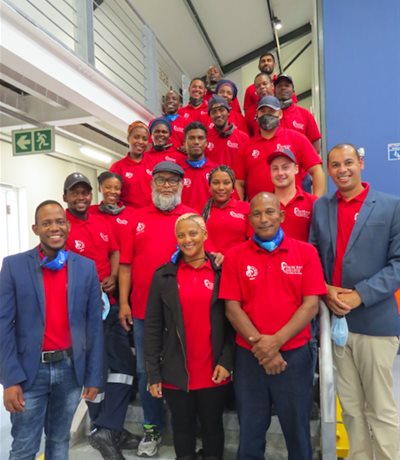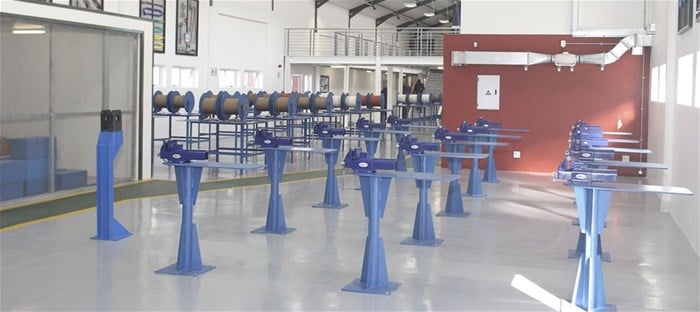
Top stories






More news


Marketing & Media
Ads are coming to AI. Does that really have to be such a bad thing?














After many changes and Covid-19 challenges the QCTO have confirmed that the first cohort of apprentices, met the external integrated summative assessment (EISA) requirements, and that Seta serial numbers for trade testing has been issued to the 27 apprentices. The apprentices, 23 males and four females, are in their final preparation stages to be trade tested.
The 27 apprentices are from Chieta, FoodBev and merSeta affiliated companies.
Oscar Kekae rigging facilitator said: “As CoS rigging facilitator at Swartklip Rigging Centre it has been a phenomenal experience to be facilitating a new occupational programme under rigging. As a rigger from a mining, construction, and power plant industry, I saw this programme as an opportunity to transfer the skills and experience that I have accumulated. I am confident that these apprentices will be employable and meet industry needs after qualifying as riggers.”
This is a moment to celebrate not only for the college, but also for the department of higher education and training who spearheaded the centres of specialisation to address the demand for priority trades needed for the countries development and more particularly to contribute towards the building of the capacity of the public Technical and Vocational Education and Training (TVET) College system to deliver trade qualifications with employer partners.
For the college, this is the first group of False Bay TVET College apprentices who completed a QCTO Occupational Certificate qualification. It is the first intake of CoS rigging apprentices who started training in March 2019, and it is the first group of who completed training at the new Swartklip Campus.
Keegan Naidoo, rigging apprentice said “The college is well structured and organised, especially when it came to workplace/college rotations and employer information briefings. Our peers were from a variety of industries, which made the learning so much more interesting. As the apprenticeship comes to an end, the skills and knowledge gained at Swartklip Rigging Centre will be with us wherever we go. I would also like to thank the staff at False Bay TVET College, Swartklip Campus, especially Oscar Kekae and the late Chadd Baker for getting us to where we are today.”

The development of the priority trades is being delivered using the dual system approach, whereby students will move between the college and a workplace, over the duration of their period of study. The CoS programme aims to significantly increase the quality of artisans trained, exceeding the employer partners expectations.
In addition, the False Bay TVET College mechanical fitting CoS apprentices were also approved for serial number from the QCTO. Twenty-four mechanical fitters were confirmed as having met all EISA requirements, and serial numbers are being issued by merSeta and LG Seta. The riggers and mechanical fitters will be trade tested during June and July 2022.
All of the above would not have been possible without the contribution and buy-in from government, industry and business. More importantly the staff who chose to drive the project, for the love of teaching and learning.